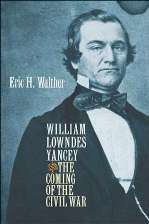I found this absolutely delightful anecdote in John F. Marszalek’s Sherman: A Soldier’s Passion for Order – a biography which looks pretty damn great based on a quick flip through.
– a biography which looks pretty damn great based on a quick flip through.
“Some time after Grant was elected President I went to call on him at the White House. I had been struck with the number and speed of his horses, and with the delight it seemed to give him to be in their company. So I said to him, ‘General, fine horses seem to have become a fad with you.’
“‘Well, Sherman,’ said he, “we all must have our fads these days. It seems to have become the fashionable thing. I have all my life been intensely fond of good horseflesh. In my youth I hadn’t the means to indulge this fancy. Later in life I had not the time. Now, when for the first time I have both the money and the leisure, I am indulging it and enjoying it to the full.’
“‘Well, general,’ said I, ‘I suppose I’ll have to be getting a fad myself I never have had one, and if I have one now I don’t know it. Let me see — let me see: what shall it be? I have it! You may drive your fast horses, and I will kiss all the pretty girls. Ha! ha! that shall be my fad.'”
Sherman is always thought of as The Destroyer, so it was hilarious to read about this later-years campaign, which by all accounts, he undertook with as much gusto as the destruction of the South.
The anecdote and many stolen-kiss followups can be found in this free online book (added to the Library), which sure seems to be a must-read for Sherman buffs like me, born 150 years too late to snare a kiss from the old rascal in person.
via Full text of “Life and deeds of General Sherman, including the story of his great march to the sea ..”.
? Worry not – the page to which I’ve linked below is just a 5 minute NPR interview with the biographer, who gives some nice bullet-point answers to the host’s general questions.



